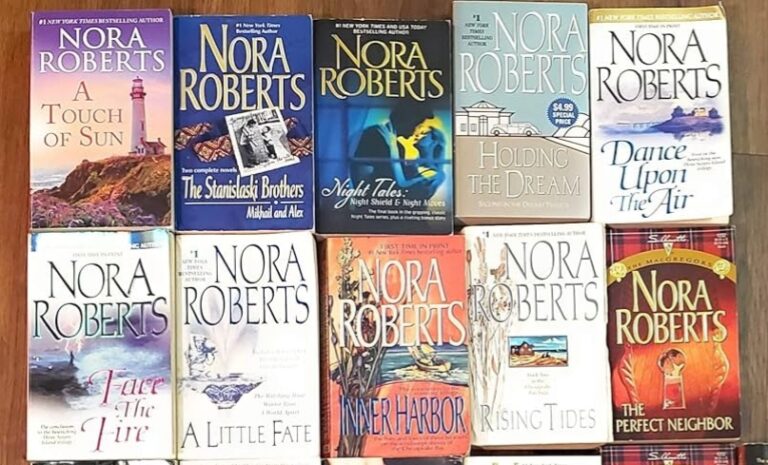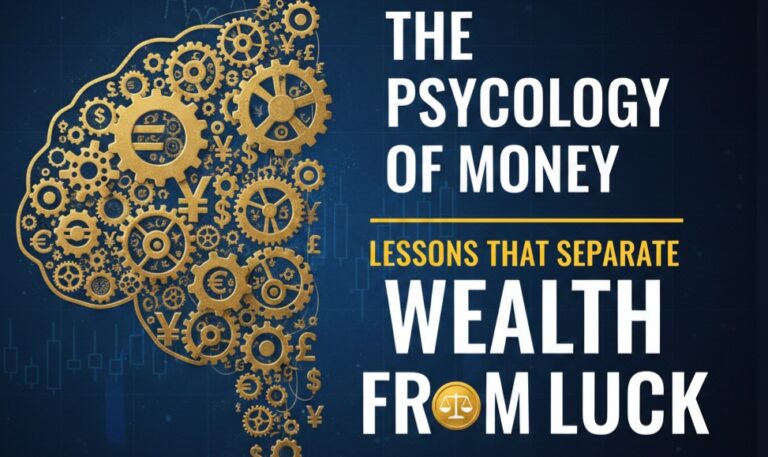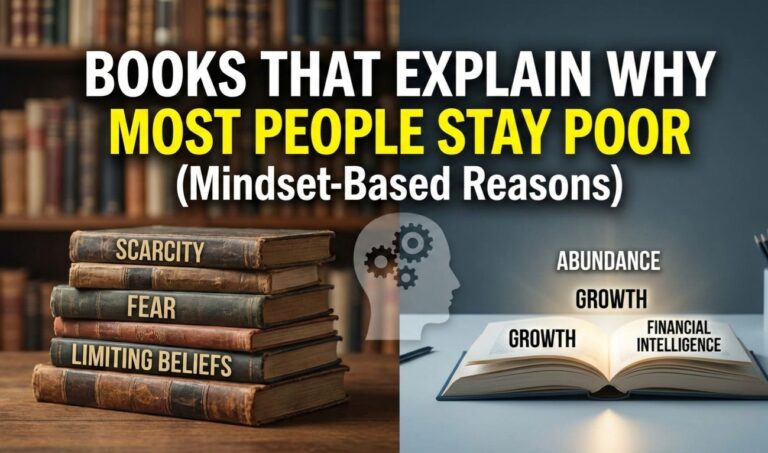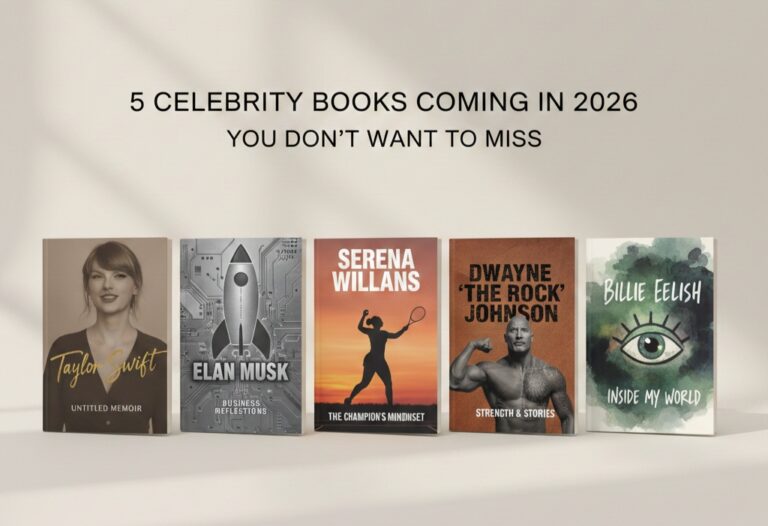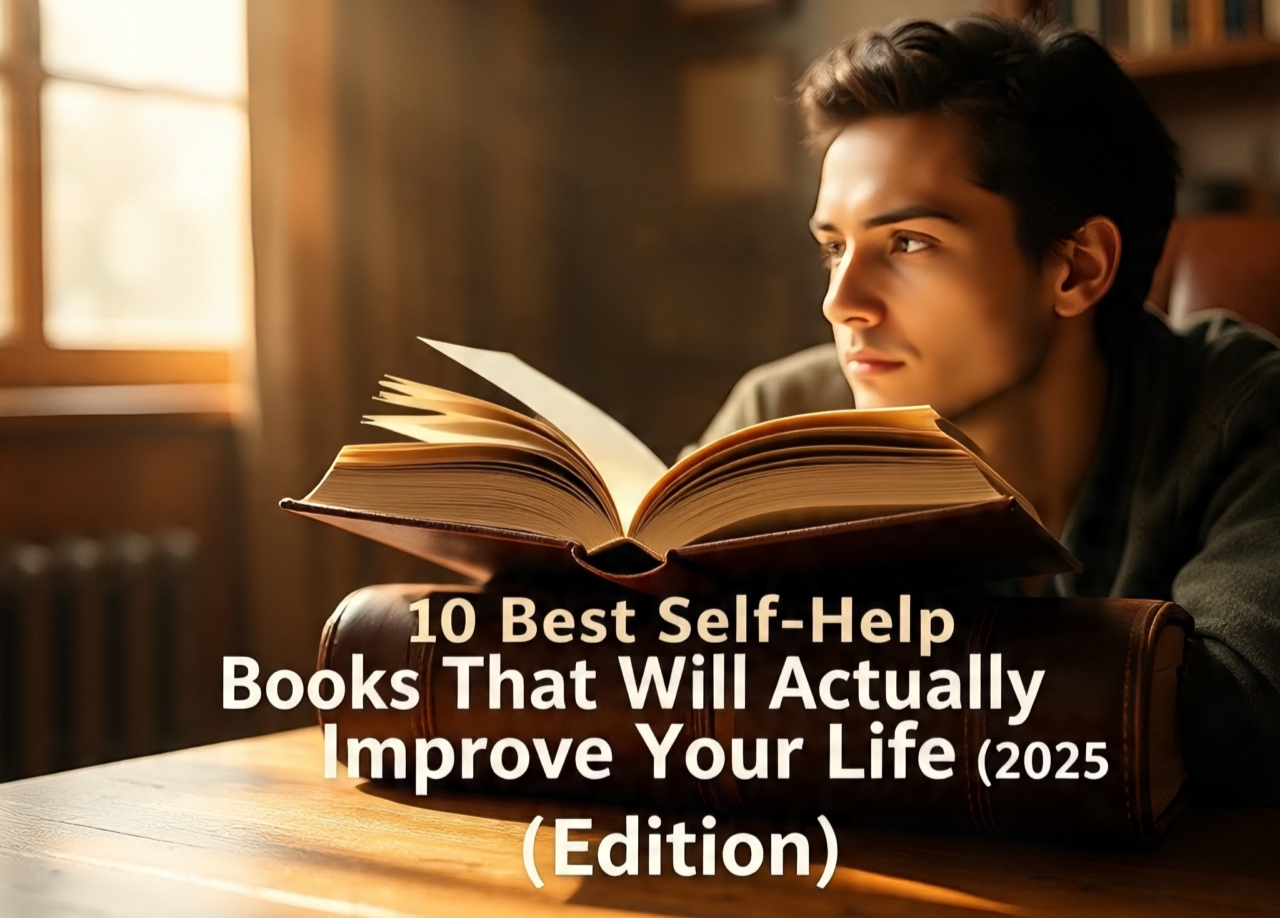
Self-help books have always been a powerful tool for personal growth, motivation, and transformation. In 2025, their relevance is stronger than ever, as readers worldwide seek practical strategies to navigate stress, career challenges, mental health struggles, and the pursuit of happiness. According to a Publishing Research Bureau 2024 report, the self-help market is projected to grow at 5.6% CAGR through 2030, with an increasing demand for evidence-based, psychology-driven titles.
But not all self-help books are equal. Some recycle clichés, while others truly change lives with actionable wisdom. In this guide, I’ve curated 10 of the best self-help books that can genuinely improve your life in 2025—based on reader impact, expert recommendations, and practical application.
Criteria for Selection
Before diving into the list, here’s how the books were chosen:
- Proven Impact – Books with widespread recognition and evidence of helping readers.
- Author Expertise – Written by psychologists, researchers, or respected thought leaders.
- Timeless Relevance – Practical advice that remains valuable in 2025.
- Balanced Approach – Books that combine inspiration with actionable steps.
- Reader Fit – Different books suit different readers (students, professionals, parents, etc.).
1. Atomic Habits by James Clear
Why It Matters in 2025
Habits are the backbone of success. With digital distractions at an all-time high, Atomic Habits remains a global bestseller because it teaches readers how small, consistent changes compound into life-altering results.
Key Lessons
- The power of 1% improvements every day.
- Building systems, not goals.
- Identity-based habits (“I am the type of person who…”).
Who Should Read It
- Professionals aiming to boost productivity.
- Students developing study routines.
- Anyone wanting to break bad habits.
Comparisons
Similar to Charles Duhigg’s The Power of Habit, but Clear’s book is more actionable and system-oriented.
Pros & Cons
✅ Clear, science-backed framework
✅ Easy to apply daily
❌ May feel repetitive for advanced readers
2. The 7 Habits of Highly Effective People by Stephen R. Covey
Why It Matters in 2025
First published in 1989, Covey’s principles remain evergreen. In today’s hybrid work culture, timeless lessons like “Begin with the end in mind” and “Seek first to understand” are more relevant than ever.
Key Lessons
- Proactivity over reactivity.
- Aligning values with long-term goals.
- Balancing personal and professional life.
Who Should Read It
- Young leaders and managers.
- Entrepreneurs and professionals.
- Anyone seeking long-term personal growth.
Comparisons
Often compared with Dale Carnegie’s How to Win Friends and Influence People—Covey’s book is broader in scope, emphasizing principles over tactics.
Pros & Cons
✅ Timeless wisdom
✅ Practical for leadership and teamwork
❌ Dense, requires patience
3. Can’t Hurt Me by David Goggins
Why It Matters in 2025
Mental toughness is essential in a world filled with uncertainty. Goggins, a Navy SEAL and endurance athlete, offers raw, no-excuse strategies to overcome adversity.
Key Lessons
- The 40% rule: When you think you’re done, you’re only 40% finished.
- The importance of accountability and discipline.
- Transforming pain into fuel for growth.
Who Should Read It
- Athletes and fitness enthusiasts.
- Anyone battling self-doubt or tough circumstances.
Comparisons
Unlike motivational books that sugarcoat, this memoir is brutally honest, closer to Jocko Willink’s Discipline Equals Freedom.
Pros & Cons
✅ Inspirational storytelling
✅ Pushes readers beyond comfort zones
❌ Extremely intense, not for everyone
4. The Subtle Art of Not Giving a Fck* by Mark Manson
Why It Matters in 2025
In a culture obsessed with toxic positivity, Manson’s blunt philosophy helps readers embrace life’s struggles rather than avoiding them.
Key Lessons
- Focus only on what truly matters.
- Accept failure as part of growth.
- Happiness comes from values, not external success.
Who Should Read It
- Millennials & Gen Z battling social media pressure.
- Anyone struggling with overthinking.
Comparisons
Similar in tone to Sarah Knight’s The Life-Changing Magic of Not Giving a Fck*, but with deeper philosophical grounding.
Pros & Cons
✅ Refreshingly honest
✅ Easy to digest
❌ Some may find the tone too harsh
5. Think Again by Adam Grant
Why It Matters in 2025
In an age of misinformation, the ability to rethink and unlearn is vital. Grant, a psychologist and Wharton professor, encourages intellectual humility and adaptability.
Key Lessons
- Challenge your own assumptions.
- Value being curious over being right.
- Create environments that welcome diverse perspectives.
Who Should Read It
- Professionals in fast-changing industries.
- Students and lifelong learners.
Comparisons
Whereas Carol Dweck’s Mindset focuses on growth vs. fixed mindset, Grant emphasizes constant reevaluation.
Pros & Cons
✅ Backed by research
✅ Highly relevant for 2025’s digital world
❌ May feel overly academic for casual readers
6. Daring Greatly by Brené Brown
Why It Matters in 2025
With mental health awareness on the rise, Brown’s research on vulnerability and courage is invaluable. She shows that true strength comes from embracing imperfections.
Key Lessons
- Vulnerability is not weakness but courage.
- Shame resilience strategies.
- Leadership requires authenticity.
Who Should Read It
- Leaders, parents, and educators.
- Anyone struggling with fear of judgment.
Comparisons
Similar to The Gifts of Imperfection (also by Brown), but this book has a broader application in leadership and relationships.
Pros & Cons
✅ Backed by decades of research
✅ Empowers emotional growth
❌ Some may find it “too soft” compared to action-oriented books
7. The Mountain Is You by Brianna Wiest
Why It Matters in 2025
Self-sabotage is one of the biggest obstacles to growth. Wiest explores why we block our own progress and how to transform destructive patterns.
Key Lessons
- Self-sabotage is unmet potential.
- Emotional intelligence is key to personal success.
- Growth comes from facing inner battles.
Who Should Read It
- Anyone struggling with procrastination.
- Readers seeking emotional healing.
Comparisons
Similar to Jen Sincero’s You Are a Badass, but Wiest offers a more introspective and psychological approach.
Pros & Cons
✅ Relatable and modern tone
✅ Practical self-reflection exercises
❌ May feel repetitive for advanced readers
8. Deep Work by Cal Newport
Why It Matters in 2025
In an era of constant notifications and AI-driven distractions, the ability to focus deeply is a superpower. Newport provides strategies for achieving high productivity.
Key Lessons
- Shallow work vs. deep work.
- Creating distraction-free environments.
- Prioritizing cognitively demanding tasks.
Who Should Read It
- Knowledge workers and creatives.
- Students preparing for exams or research.
Comparisons
Similar to Nir Eyal’s Indistractable, but Newport emphasizes focus as a long-term skill.
Pros & Cons
✅ Science-based strategies
✅ Highly applicable in today’s digital age
❌ Rigid methods may not fit all lifestyles
9. The Happiness Project by Gretchen Rubin
Why It Matters in 2025
With rising stress levels, readers want practical ways to cultivate happiness. Rubin’s year-long experiment offers real-world strategies.
Key Lessons
- Happiness comes from daily choices.
- Small changes in relationships and routines matter.
- Gratitude and mindfulness boost well-being.
Who Should Read It
- Anyone seeking everyday happiness.
- Readers new to self-help.
Comparisons
Similar to Shawn Achor’s The Happiness Advantage, but Rubin’s book feels more personal and relatable.
Pros & Cons
✅ Relatable and engaging storytelling
✅ Easy, practical steps
❌ May feel too light for those seeking deep psychology
10. Ikigai: The Japanese Secret to a Long and Happy Life by Héctor García & Francesc Miralles
Why It Matters in 2025
Amid burnout culture, Ikigai offers a balanced, Eastern philosophy-driven approach to living with purpose.
Key Lessons
- Finding purpose through the intersection of passion, mission, vocation, and profession.
- Longevity secrets from Okinawa.
- The importance of flow and simplicity.
Who Should Read It
- Readers seeking meaning beyond career success.
- Anyone interested in holistic well-being.
Comparisons
Comparable to Viktor Frankl’s Man’s Search for Meaning, but with a lighter, lifestyle-oriented approach.
Pros & Cons
✅ Inspiring cross-cultural wisdom
✅ Short and accessible read
❌ Less structured than other self-help classics
Expert Opinions
- Dr. Martin Seligman (Positive Psychology pioneer) notes that books like The Happiness Project and Ikigai align with evidence-based psychology on well-being.
- Harvard Business Review (2024) highlighted Think Again and Deep Work as must-reads for professionals adapting to AI-driven industries.
- Healthline (2025) recommends Daring Greatly for emotional resilience in modern relationships.
Practical Applications
- Apply Atomic Habits to fitness or study routines.
- Use Deep Work strategies for exam prep or creative projects.
- Practice Think Again during workplace debates to stay open-minded.
- Implement The Happiness Project exercises in daily life.
FAQs
1. Which self-help book is best for beginners?
👉 The Happiness Project and Atomic Habits are simple, practical starting points.
2. Which book is best for professionals in 2025?
👉 Deep Work and Think Again—both tackle focus and adaptability.
3. What’s the most motivational book on this list?
👉 Can’t Hurt Me by David Goggins—ideal if you need raw, tough love.
4. Which book is best for mental health?
👉 Daring Greatly and The Mountain Is You focus on vulnerability and healing.
5. Are these books still relevant in 2025?
👉 Absolutely. While some were published years ago, their core lessons remain timeless.
6. What if I only want one book from this list?
👉 Start with Atomic Habits—it creates the foundation for all other growth.
7. Can self-help books replace therapy?
👉 No. They’re excellent tools for guidance, but professional help is essential for serious mental health issues.
Conclusion
Self-help books are not magic wands—they won’t transform your life overnight. But the right book, applied with consistency, can reshape your mindset, habits, and relationships.
Whether you’re building discipline (Atomic Habits), finding meaning (Ikigai), or developing courage (Daring Greatly), each of these books provides actionable wisdom that’s more relevant in 2025 than ever before.
👉 So, which book will you pick up first?
External Authority References
- Harvard Business Review on Self-Improvement
- Healthline’s Mental Health Resources
- American Psychological Association
Thank you for reading!
Stay tuned for more inspiring Books summary, Author spotlight, Trend Books & more get full information on TheBooksX.com!
